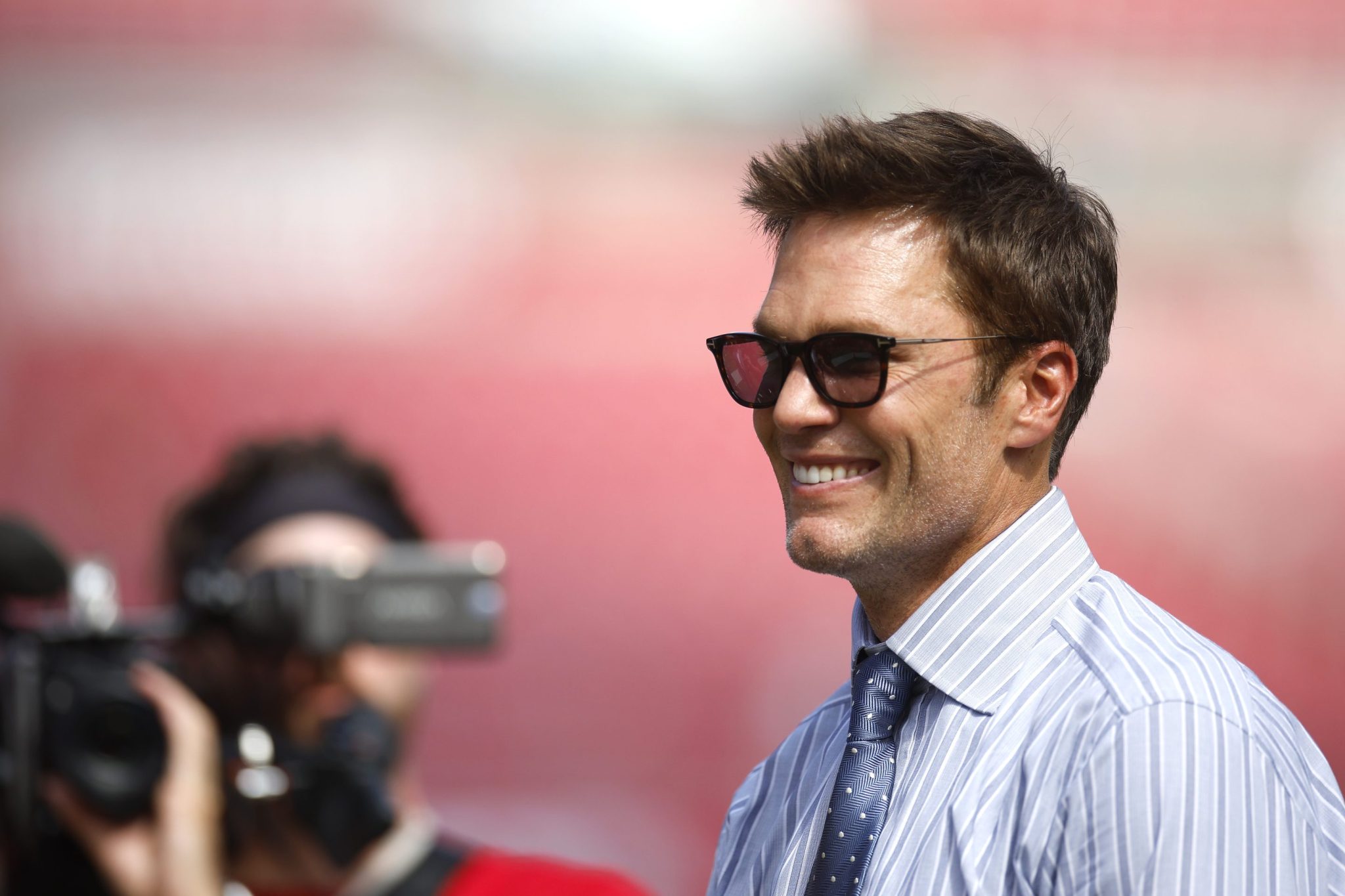Despite being the winningest player in NFL history, Tom Brady is no stranger to failure.
Closing out the Fortune Global Forum in New York Tuesday, Tom Brady spoke opposite Fortune editor-in-chief Alyson Shontell and Harvard Business School professor and Thrive Capital executive chairman Nitin Nohria about what, to his mind, distinguishes winning leaders.
As a high schooler in San Mateo, Calif., Brady explained, he was the backup quarterback on a team that didn’t win a single game, he recalled onstage.
“We were 0-8, we sucked so bad,” Brady told Shontell. “And they still wouldn’t put me on the field.”
It wasn’t until the first freshman quarterback quit to play basketball that Brady pursued the position—and his love for football grew from there. Though it would still be several more years—and setbacks—before he would become the starting quarterback at the University of Michigan. After that he was the sixth-round, 199th overall NFL draft pick of 2000.
Brady went on to smash league records, earning seven Super Bowl titles. He spent his first 20 seasons on the New England Patriots, where he won six Super Bowls, and his final three seasons on the Tampa Bay Buccaneers, where he won one. He officially retired at the end of the 2023 season and is now a Fox Sports commentator.
Brady has launched many business ventures over the course of his career including TB12, a health and nutrition company he cofounded in 2013. In January, he merged the company with fitness brand Nobull.
He sees failure as the key differentiator in those with a winning mindset.
“The reality of your business and career is overcoming adversity,” Brady said. “The only way to do that is to fail, and the only way to fail is to put yourself in uncomfortable positions. If you fail, and then you figure out a solution for the people you work with to overcome the failure, you gain a lot of self confidence, and if you gain self confidence, you’ll get a better chance for the next opportunity to succeed.”
Failure is “amazing” to Brady, he said, “because it teaches you, and forces you, to look inside yourself and see what you can do better.”
Athletes often blame anyone but themselves, he said. He mentioned that he’ll often watch a game tape and hear a quarterback blaming an error on the wide receiver. “I’m watching the screen like, what did you just say?”
Sometimes athletes will blame coaches, and then coaches will…
Click Here to Read the Full Original Article at Fortune | FORTUNE…


